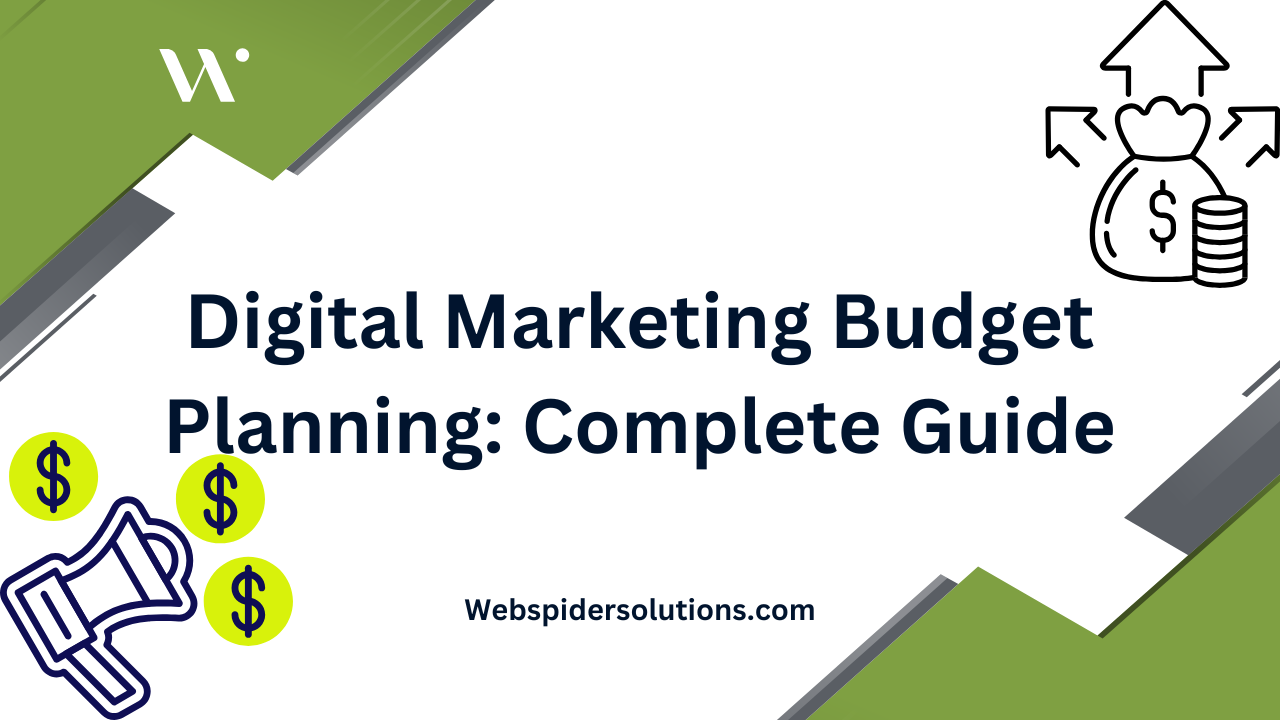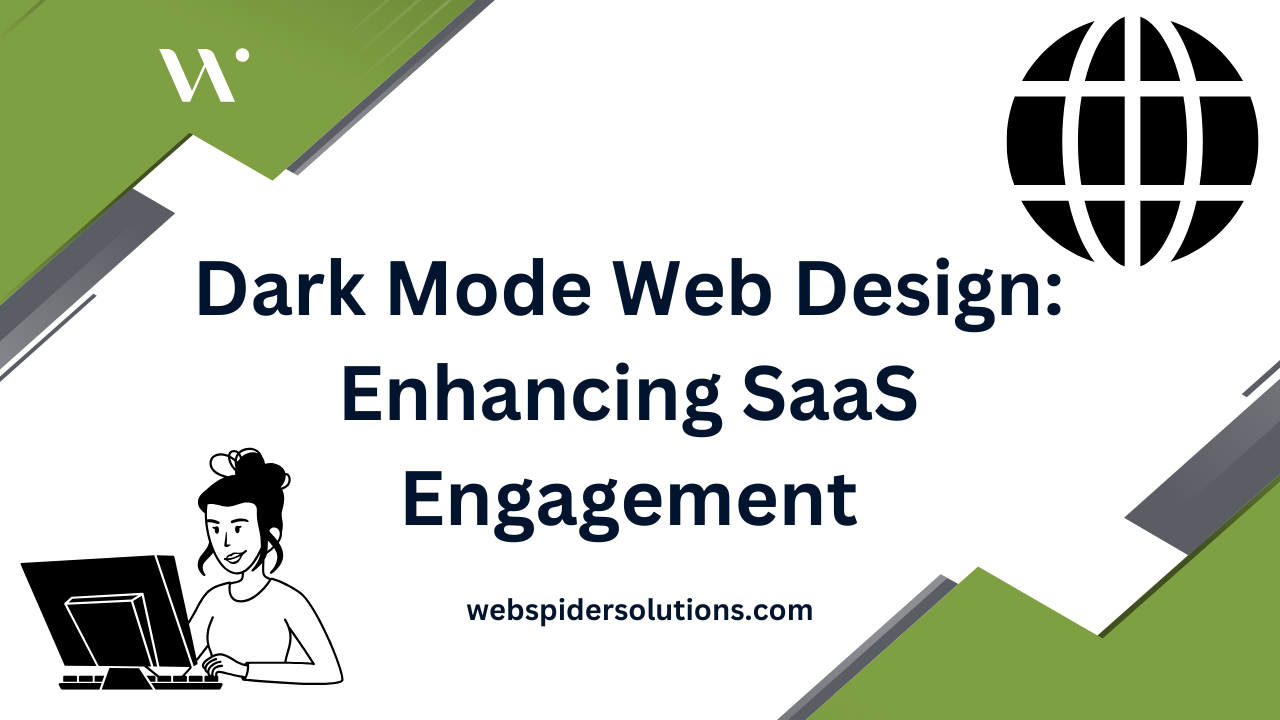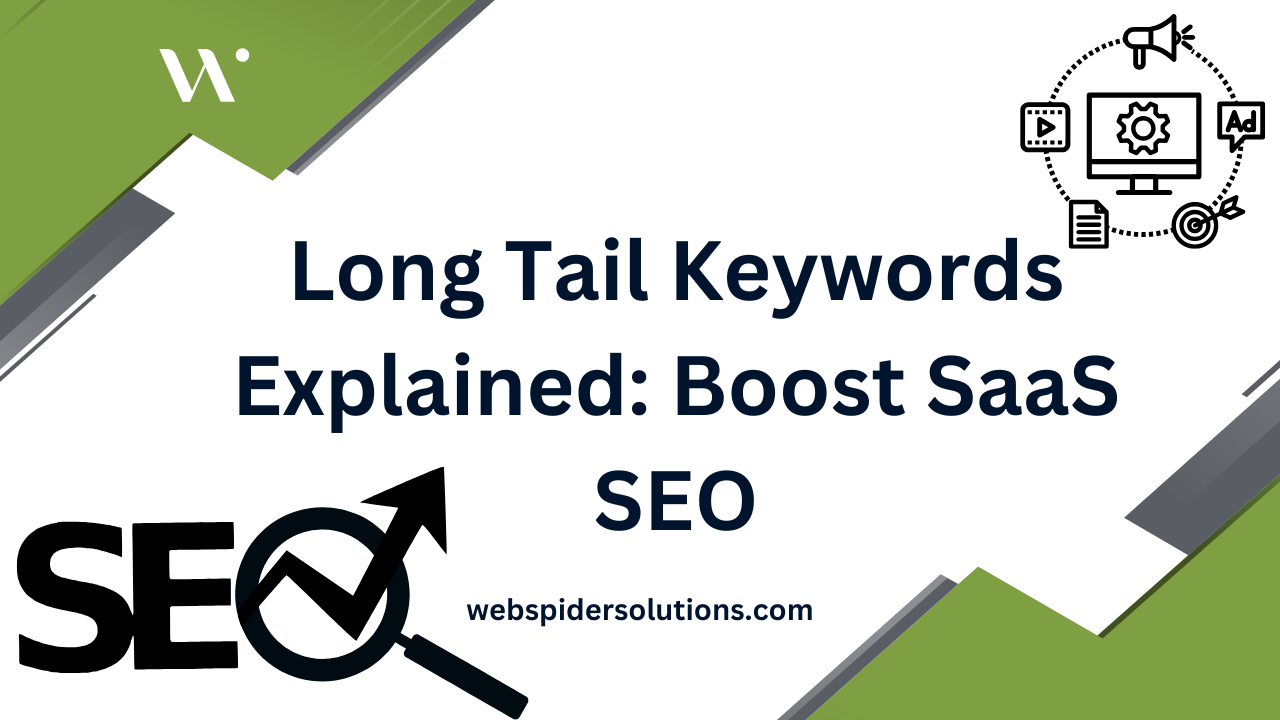Over 60% of businesses admit to wasting part of their digital marketing budget each year. With so many platforms and strategies to choose from, figuring out where your money actually makes an impact can feel like a moving target. Understanding digital marketing budget planning empowers you to place your resources where they drive real growth, save money, and outsmart the competition.
Table of Contents
- Defining Digital Marketing Budget Planning
- Types Of Digital Marketing Budgets
- Key Components Of Budget Allocation
- Steps To Create An Effective Budget
- Common Pitfalls And How To Avoid Them
Key Takeaways
| Point | Details |
|---|---|
| Strategic Resource Allocation | Digital marketing budget planning involves careful mapping of financial resources across online channels to maximize ROI and achieve business objectives. |
| Types of Budgets | Businesses should choose from basic, intermediate, integrative, or aggressive budgets based on size, industry, and growth ambitions. |
| Key Components | Effective budget allocation requires analysis of channel performance, ROI measurement, and flexibility for adjustments based on real-time data. |
| Common Pitfalls | Acknowledging hidden costs, ensuring performance measurement, maintaining channel diversification, and aligning budgets with business goals are crucial to avoid financial missteps. |
Defining Digital Marketing Budget Planning
Digital marketing budget planning is a strategic process of allocating financial resources across various online marketing channels to maximize return on investment (ROI) and achieve specific business objectives. According to proceeding.unesa.ac.id, contemporary businesses are shifting towards more predictive and performance-based budgeting models that leverage data analytics for smarter financial allocation.
At its core, digital marketing budget planning involves carefully mapping out anticipated expenses across different digital platforms and tactics. This includes determining potential costs for key marketing channels such as:
- Search engine advertising (Google Ads)
- Social media marketing
- Content marketing
- Email campaigns
- Website optimization
- Paid social advertisements
The approach is fundamentally different from traditional marketing budgets. As research from jetir.org highlights, digital platforms like Google Ads and Facebook offer unprecedented flexibility, allowing businesses to set precise budgets, target specific customer segments, and dynamically adjust spending based on real-time performance data.
Successful digital marketing budget planning requires a nuanced understanding of your business goals, target audience, and the unique capabilities of each digital channel. It’s not about spending the most money, but strategically investing resources where they will generate the highest potential returns. This means continuously monitoring campaign performance, being willing to reallocate funds, and maintaining the agility to pivot your strategy as market conditions and customer behaviors evolve.
Types Of Digital Marketing Budgets
Digital marketing budgets vary dramatically based on business size, industry, and strategic objectives. According to research from systems.enpress-publisher.com, marketing budgets can be categorized into four distinct levels that reflect different stages of digital marketing investment and business growth potential.
The four primary types of digital marketing budgets are:

- Basic Budget (1-5% of Revenue)
- Ideal for small businesses or startups
- Focuses on essential digital marketing activities
- Typically includes limited social media and basic search advertising
- Intermediate Budget (5-10% of Revenue)
- Suitable for growing businesses with established online presence
- Allows for more comprehensive marketing strategies
- Supports expanded advertising and content marketing efforts
- Integrative Budget (10-15% of Revenue)
- Designed for businesses committed to aggressive digital growth
- Enables multi-channel marketing campaigns
- Supports advanced targeting and sophisticated marketing technologies
- Aggressive Budget (15%+ of Revenue)
- Reserved for companies seeking market leadership
- Comprehensive digital marketing across all platforms
- Supports cutting-edge marketing technologies and experimental strategies
Choosing the right budget type requires careful assessment of your business’s current stage, growth objectives, and competitive landscape. Learn more in our comprehensive guide to digital marketing costs, which can help you understand how to strategically allocate your marketing investments for maximum impact. The key is not just spending money, but investing strategically in channels and tactics that directly support your specific business goals and target audience engagement.

Key Components Of Budget Allocation
Digital marketing budget allocation is a complex strategic process that requires careful analysis and precision. According to research from arxiv.org, successful budget distribution demands a unified framework that leverages data-driven approaches to forecast market responses and optimize channel investments while respecting critical business constraints.
The key components of digital marketing budget allocation typically include:
- Channel Distribution
- Campaign Performance Tracking
- ROI Measurement
- Target Audience Segmentation
- Competitive Landscape Analysis
- Technology and Tool Investment
Interestingly, research from arxiv.org suggests an innovative approach to budget allocation, recommending ‘bang-bang’ strategies that concentrate maximum effort in strategic waves across different marketing channels. This means instead of spreading resources thin, businesses should focus intensively on specific channels at different times to maximize impact.
Effective budget allocation isn’t just about dividing funds – it’s about strategic investment. Learn more about measuring marketing ROI in our comprehensive guide, which can help you understand how to track and optimize your digital marketing spend. The most successful companies view their marketing budget as a dynamic investment portfolio, continuously adjusting allocations based on real-time performance data, emerging technologies, and shifting market dynamics.
Steps To Create An Effective Budget
Digital marketing budget planning requires a structured, strategic approach that goes beyond simple number-crunching. Creating an effective budget is about aligning your financial resources with your most critical business objectives and growth opportunities.
Here are the comprehensive steps to develop a robust digital marketing budget:
- Assess Current Business Goals
- Identify specific marketing objectives
- Determine key performance indicators (KPIs)
- Align budget with overall business strategy
- Analyze Historical Performance
- Review previous marketing expenditures
- Evaluate return on investment (ROI) for past campaigns
- Identify high-performing and underperforming channels
- Research Market and Competitive Landscape
- Understand industry benchmarks
- Analyze competitors’ digital marketing strategies
- Identify potential emerging channels
- Calculate Realistic Budget Allocation
- Determine percentage of revenue for marketing
- Distribute funds across different digital channels
- Consider cost per acquisition and lifetime customer value
- Implement Tracking and Measurement Systems
- Set up analytics tools
- Create performance dashboards
- Establish regular reporting mechanisms
- Build Flexibility into Your Budget
- Reserve funds for experimental strategies
- Create contingency allocations
- Allow for quick pivots based on real-time data
Digital Advertising Explained: Strategies, Types, and ROI provides additional insights into developing comprehensive marketing strategies that can help refine your budgeting approach. Remember, an effective digital marketing budget is not a static document but a dynamic tool that evolves with your business, market conditions, and emerging opportunities.
Common Pitfalls And How To Avoid Them
Digital marketing budget planning is fraught with potential missteps that can derail even the most well-intentioned strategies. According to research from hilarispublisher.com, many organizations struggle with inadequate ROI analysis and lack of comprehensive variance tracking, which can significantly impact financial performance.
The most common digital marketing budget pitfalls include:
- Underestimating Hidden Costs
- Overlooking technology subscription fees
- Ignoring content creation expenses
- Failing to account for tool integration costs
- Neglecting Performance Measurement
- Using insufficient analytics tools
- Skipping regular performance reviews
- Not establishing clear KPI benchmarks
- Poor Channel Diversification
- Overinvesting in single marketing channels
- Ignoring emerging digital platforms
- Failing to test new marketing strategies
- Inflexible Budget Allocation
- Creating rigid, unchangeable budgets
- Not allowing quick strategic pivots
- Resisting data-driven budget adjustments
- Misalignment with Business Goals
- Disconnecting marketing spend from core objectives
- Lacking strategic budget planning
- Treating marketing as an expense instead of an investment
Avoid These SEO Techniques: Fix Rankings Now can provide additional insights into steering clear of counterproductive marketing strategies. Remember, successful budget planning is about creating a dynamic, responsive framework that adapts to your business’s evolving needs and market conditions.
Master Your Digital Marketing Budget for Maximum Growth
Struggling to allocate your digital marketing budget with confidence? The article highlighted key challenges like channel distribution, ROI measurement, and maintaining flexibility in a dynamic market. You may feel overwhelmed by underperforming campaigns or hesitant to pivot resources without clear data. These concerns are common when trying to balance aggressive growth goals with budget constraints.
At Web Spider Solutions, we understand how crucial it is to strategically invest in the right digital channels. Our expertise spans Paid Advertising Archives – Web Spider Solutions and B2B Marketing Archives – Web Spider Solutions. We focus on delivering measurable results through tailored strategies that optimize your spend and maximize ROI. If you want to stop guessing and start gaining real insight into your marketing investments, explore how we can help your business achieve sustained digital growth.
Take control of your marketing budget now and turn it into a powerful growth engine. Visit Web Spider Solutions to request a free consultation and start crafting a budget plan that evolves with your business needs.
Frequently Asked Questions
What is digital marketing budget planning?
Digital marketing budget planning is the strategic process of allocating financial resources across various online marketing channels to maximize ROI and meet specific business objectives.
How do I determine the right budget for my digital marketing efforts?
Choosing the right budget involves assessing your business size, growth stage, and strategic goals, along with evaluating industry benchmarks and competitor strategies.
What are the common pitfalls in digital marketing budget planning?
Common pitfalls include underestimating hidden costs, neglecting performance measurement, poor channel diversification, rigid budget allocation, and misalignment with business goals.
What should I include in my digital marketing budget allocation?
Your digital marketing budget allocation should include channel distribution, campaign performance tracking, ROI measurement, target audience segmentation, competitive analysis, and technology investments.
Recommended
-
- Cost of Digital Marketing: Complete Guide for 2025 – Web Spider Solutions
- Digital Marketing Strategy Steps for 2025 Success – Web Spider Solutions
- How to Measure Marketing ROI for Smarter Decisions – Web Spider Solutions
- Digital Advertising Explained: Strategies, Types, and ROI – Web Spider Solutions











